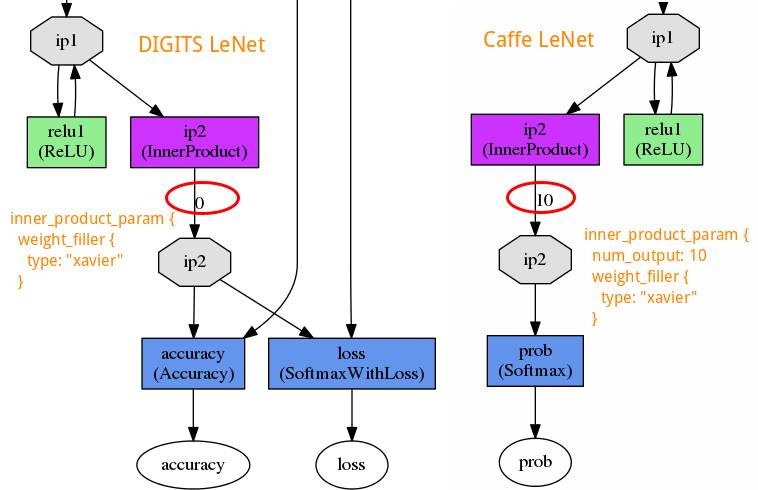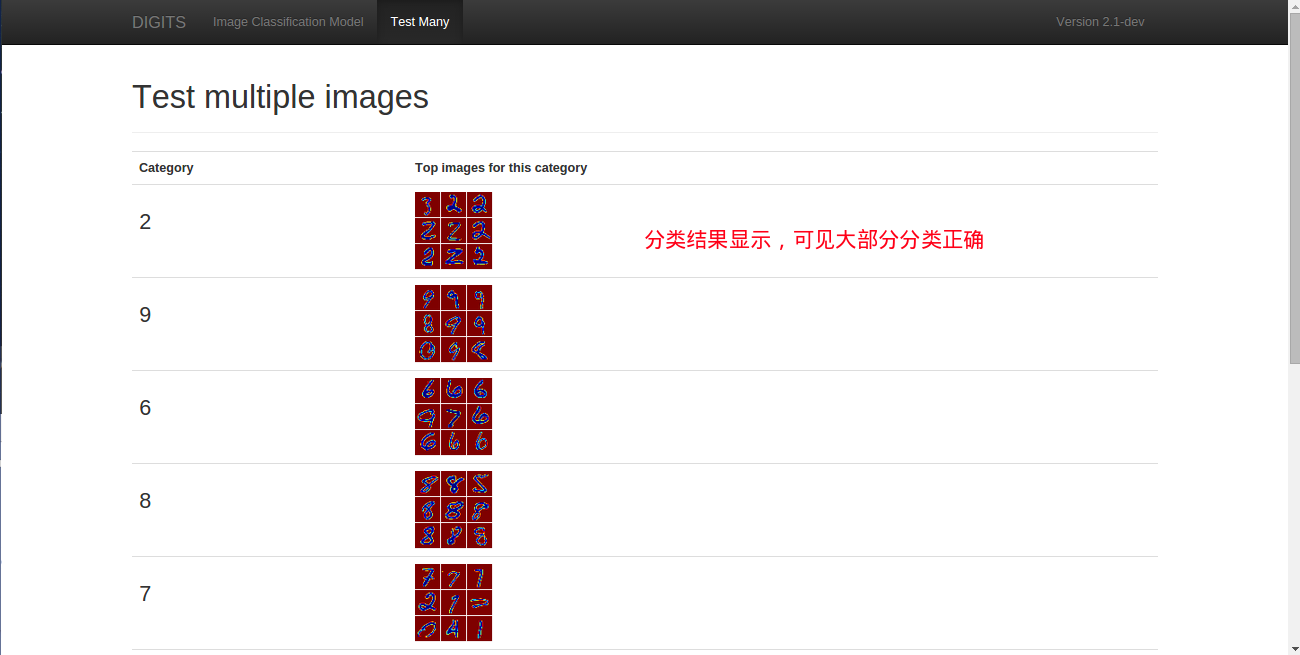digits专题
uva 10061 How many zero's and how many digits ?(不同进制阶乘末尾几个0)+poj 1401
题意是求在base进制下的 n!的结果有几位数,末尾有几个0。 想起刚开始的时候做的一道10进制下的n阶乘末尾有几个零,以及之前有做过的一道n阶乘的位数。 当时都是在10进制下的。 10进制下的做法是: 1. n阶位数:直接 lg(n!)就是得数的位数。 2. n阶末尾0的个数:由于2 * 5 将会在得数中以0的形式存在,所以计算2或者计算5,由于因子中出现5必然出现2,所以直接一
ural 1014. Product of Digits贪心
1014. Product of Digits Time limit: 1.0 second Memory limit: 64 MB Your task is to find the minimal positive integer number Q so that the product of digits of Q is exactly equal to N. Inpu
【FZU】2105 Digits Count 线段树
传送门:【FZU】2105 Digits Count 题目分析:与、或、异或三种操作都是每一位相互独立的,所以可以将线段树建四棵,分别对应一位,and和or操作相当于覆盖操作,xor操作相当于反转操作,就和普通的线段树方法类似,设立两个lazy标记即可。查询的时候求得每一位的1的个数*权重(1,2,4,8),全部累加就是答案。 代码如下: #include <cst
Subtract the Product and Sum of Digits of an Integer
Given an integer number n, return the difference between the product of its digits and the sum of its digits. Example 1: Input: n = 234Output: 15 Explanation: Product of digits = 2 * 3 * 4 = 24
java 2.6** Summing the digits in an integer
例如 : 999 process: sum=9+9+9=27; 例如 : 932 process: sum=9+3+2=14; import java.util.Scanner;public class Main {public static void main(String[] args) {Scanner input=new Scanner(System.in);int
codeforces 289 C Sums of Digits
贪心,做了两个半小时没做出来!主要在于求有k位且恰比某个数大的最小值,从左到右检查可以加1的位,若后面的位满足条件,再根据solve中的方法满足条件的最小值。 #include<iostream>#include<string>#include<cstring>#include<cstdio>#include<cmath>#include<iomanip>#include<map
F - Problem where +s Separate Digits
算第三遍了。。都没有想透 。。 而且这题的解法非常多样。。有正序 逆序 递推的方式也非常多。 下面是找到的一个感觉相对比较简洁的。(核心代码) 有兴趣再看吧。。先pass了。 //上面都是mod的模版部分 省略掉 下面才是核心代码Z base[N], p[N];void solve() {string s;cin >> s;n = s.size();base[0] = 1;p[0] = 1
Add Digits问题及解法
问题描述: Given a non-negative integer num, repeatedly add all its digits until the result has only one digit. 示例: Given num = 38, the process is like: 3 + 8 = 11, 1 + 1 = 2. Since 2 has only one digit
HDU 4333 Revolving Digits 扩展KMP
题目来源:HDU 4333 Revolving Digits 题意:求一个数字循环移动后有多少个不同的小于 等于 大于的数字 思路:扩展KMP求出S[i..j]等于S[0..j-i]的最长前缀 判断 next[i] 大于等于n就是相同 小于n判断S[next[i]]和S[next[i]+i]的大小 next数组的含义就是S字符串以i开始的和S本身(以0开始)的最长公共前缀 把题目输入的复制一
uva11198 Dancing Digits
简单题,直接暴力,而且不需要太多剪枝就能过。 忘了写insert函数的返回值导致wa一次,怎么感觉oj上的编译器和我电脑上的g++不一样 #include<cstdio>#include<cstring>#include<algorithm>#include<cmath>#define HASHSIZE 40000#define MAX 50000using namespac
UVa 993: Product of digits
这道题很简单。先将N用2,3,5,7(即10以内的素数)分解因数(需要先特殊判断N不为1),然后将可以合并的因数合并(如2*2合并成4,)这样求得的结果位数会减少,大小肯定会小一些。具体实现见代码。 我的解题代码如下: #include <iostream>#include <cstdio>#include <cstring>#include <cmath>#include <cs
NVIDIA DIGITS 学习笔记(参数)
本文主要记录了NVIDIA DIGITS的参数设置方法及其与Caffe中的参数的对应关系。 数据集模型参数DIGITS中的错误 数据集 手写体MNIST数据集的原始数据格式为:png,每幅图像大小为: 28×28 28\times28,包含70K个手写体数字,共10类,其中60K为训练用样本(train+val),10K的测试样本(test)。本例中,从训练样本中随机抽
NVIDIA DIGITS 学习笔记(NVIDIA DIGITS-2.0 + Ubuntu 14.04 + CUDA 7.0 + cuDNN 7.0 + Caffe 0.13.0)
NVIDIA DIGITS-2.0 + Ubuntu 14.04 + CUDA 7.0 + cuDNN 7.0 + Caffe 0.13.0环境配置 引言 DIGITS简介DIGITS特性资源信息说明 DIGITS安装 软硬件环境 硬件环境软件环境 操作系统安装DIGITS安装前准备 安装CUDA70deb方式 显卡切换 安装cuDNN70安装Caffe-0130 安装DIGITS启
143.Count Numbers with Unique Digits
Given a non-negative integer n, count all numbers with unique digits, x, where 0 ≤ x < 10n. Example: Given n = 2, return 91. (The answer should be the total numbers in the range of 0 ≤ x < 100, exc
hdu4333 Revolving Digits - exkmp
题目连接:http://acm.hdu.edu.cn/showproblem.php?pid=4333 题意:多组数据,给一串数字,问每次旋转得到的数字串比原串小、等、大的数量。e.g.原串为"341",而3次旋转得到的数字串分别是:341、134、413。故答案输出1 1 1 题解:exkmp;题目中说的是能构成的不同的串,而当且仅当原串有循环节时所构成的串有重复(自己想想),所以先用nex
leetcode之旅(6)-Add Digits
题目: Given a non-negative integer num, repeatedly add all its digits until the result has only one digit.For example:Given num = 38, the process is like: 3 + 8 = 11, 1 + 1 = 2. Since 2 has only one di
LeetCode: Reconstruct Original Digits from English
这道 LeetCode 上的题目,还是有点难度,有点意思的。就是要把给定的字符串中的英文,组合成 0,1,2,3,4,5,6,7,8,9 0,1,2,3,4,5,6,7,8,9 这几个数字的英文,再按升序将数字输出。 具体的,题目描述如下: Given a non-empty string containing an out-of-order English representation
hdu4333Revolving Digits
题目大意: 依次将最后面的数字往第一位移动,求得出的这些结果中大于等于小于原数的个数; 解题思路: 为了保证结果的正确性,首先的去重,诸如123123这样的字符串,我们只要计算123这种情况即可,去重可以利用KMP求出循环节即可,最后将循环节复制成两份相同的再拓展kmp比较大小! #include<iostream>#include<stdio.h>#include<string.
cf1228AA. Distinct Digits
A. Distinct Digits time limit per test1 second memory limit per test256 megabytes inputstandard input outputstandard output You have two integers ? and ?. Find an integer ? which satisfies the conditi
E - Equal Digits Gym - 100519E(数学)
For the given integer N and digit D, find the minimal integer K ≥ 2 such that the representation of N in the positional numeral system with base K contains the maximum possible consecutive number of d
Project Euler_Problem 160_Factorial Trailing Digits_费马小定理,威尔逊定理,左右互搏
原题目: 题目大意:1e12的阶乘,不算末尾的0,后5位数字为多少 解题思路: 暴力运算也能算,就是有点慢,优化过后可能也得算个几十分钟 这里考虑使用威尔逊定理+费马小定理 用这个方法我们就可以得到对于任何一个小于p的数n,p为素数,n!在模p下的结果, 对于本题: 则我们要找的答案应该是512628437919+k*39的最后几位有效数字,当k>100000时,显然末尾数字就
Project Euler_Problem 172_Few Repeated Digits_动态规划
原题目: 题目大意:18位数里头,有多少个数,对于每个数字0-9,在这18位里面出现均不超过3次 111222333444555666 布星~~ 112233445566778899 可以~~ 解题思路: 动态规划 代码: ll F[19][3000000];void solve() {ll i, j,k,x,y,z,p,q,u,v;ll N = 18,NN=4;double
LeetCode 357 Count Numbers with Unique Digits (排列组合)
Given a non-negative integer n, count all numbers with unique digits, x, where 0 ≤ x < 10n. Example: Given n = 2, return 91. (The answer should be the total numbers in the range of 0 ≤ x < 100, exclu
258 Add Digits
public int addDigits(int num) {while (num > 9) {num = func(num);}return num;}public static int func(int n) {int temp = 0;while (n > 0) {temp += (n % 10);n = n / 10;}return temp;} 没有实现: Follow up: C
LeetCode-Count Numbers with Unique Digits
Given a non-negative integer n, count all numbers with unique digits, x, where 0 ≤ x < 10n. Example: Input: 2 Output: 91 Explanation: The answer should be the total numbers in the range of 0 ≤ x < 1
【leetcode】357. Count Numbers with Unique Digits【M】【72】
Given a non-negative integer n, count all numbers with unique digits, x, where 0 ≤ x < 10n. Example: Given n = 2, return 91. (The answer should be the total numbers in the range of 0 ≤ x < 100, e








